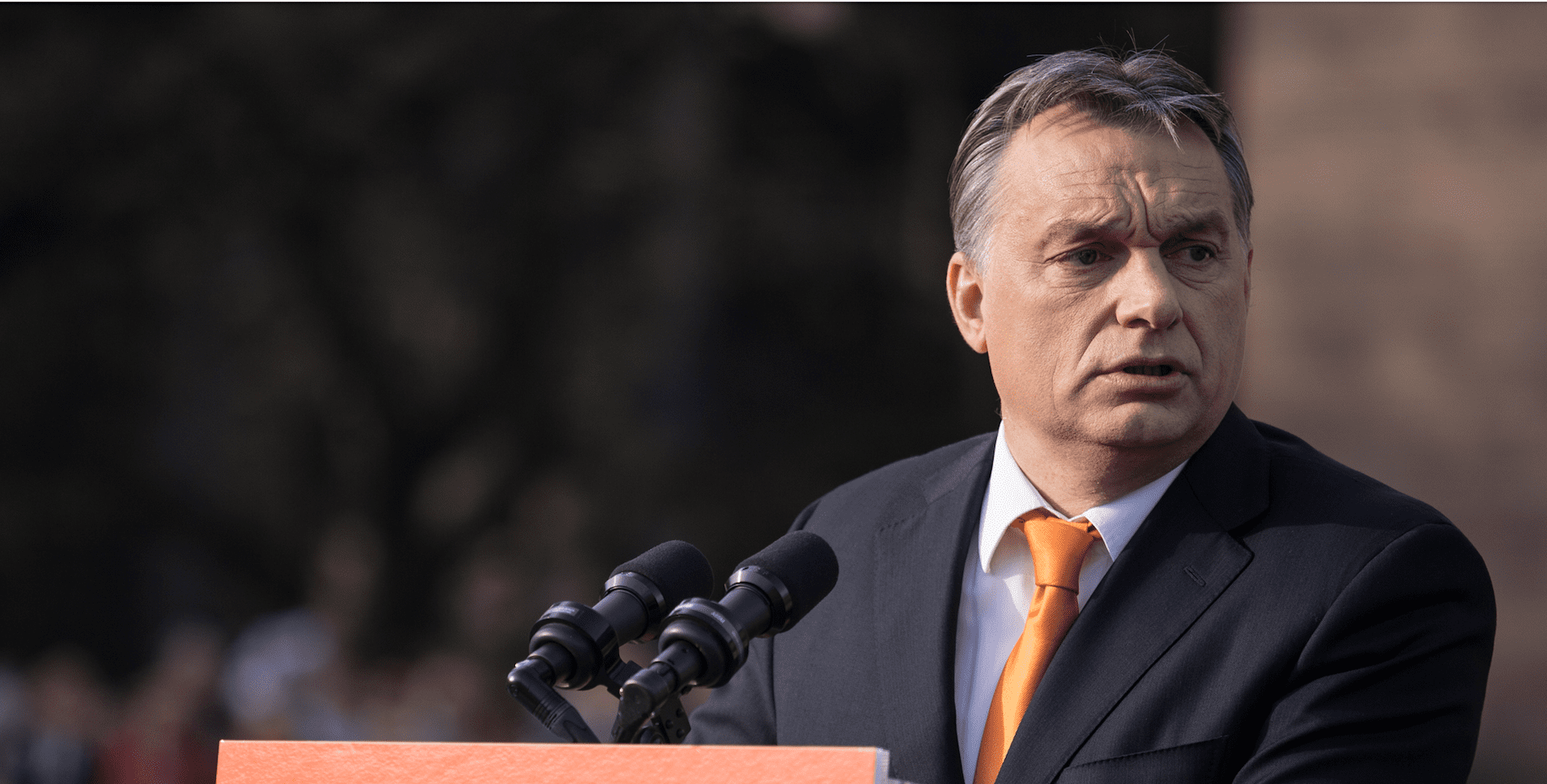Prime Minister Orbán has won his fourth consecutive term in a landslide victory last night – his party not only keeping the government but their two-thirds super-majority as well, nearly replicating their 2010 record numbers. Hungary has once again turned orange as Fidesz won almost all constituencies in the countryside, while Budapest (quite expectedly) was taken by the United Opposition. Now, as the initial shock of the aftermath has started to disperse, we should take a look at some of the most important lessons and challenges this election has presented, not only to Hungary, but to Europe and to the whole West as well.
But first, the facts. In this election cycle, Orbán was facing his greatest challenge in at least the last twelve years, mostly due to the unusual formation in which his challengers were running. The United Opposition emerged as the single-list platform of six different opposition parties (an unholy union of conservatives, liberals, socialists, and progressives) leaving only the far-right Mi Hazánk (Our Homeland) and the joke party Two-Tailed Dog (MKKP) to compete individually against Fidesz. Nobody really gave much thought to how such a colourful six-party coalition would govern once elected, and nobody really wanted to discuss that either. The only thing that kept the broad opposition coalition members together was their shared hatred of Orbán, so their only real program was defeating him at the ballots.
Hungary has overwhelmingly shown approval of the past twelve years of Fidesz and Viktor Orbán, and in doing so, it has chosen a clear path for the next four years as well
And yet, the opposition’s seemingly fail-proof plan has brought disaster upon them. The parties that make up the United Opposition have not only failed at the one thing they set up to do, but also lost six previously held seats in parliament, gaining only 56 seats, winning less than 35 per cent of the votes. By contrast, Fidesz has managed to expand its super-majority by two (bringing its total seats to 135). Surprisingly enough, obtaining seven seats with more than 6 per cent of the votes, the far-right Mi Hazánk also entered parliament for the first time, further increasing the now heavily right-wing composition of the house. These results leave absolutely no room for doubts: Hungary has overwhelmingly shown approval of the past twelve years of Fidesz and Viktor Orbán, and in doing so, it has chosen a clear path for the next four years as well, despite all the internal and external noise wishing us to believe otherwise.
Now, unsurprisingly enough, the main reason behind the Opposition’s spectacular defeat is their newfound strategy of running as a single party – combined with the dreadful geopolitical atmosphere Russia has created. Compared to this year, the parties that make up the UO gained almost 900 thousand more votes between them just four years ago, a staggering difference which has now strengthened either Fidesz or Mi Hazánk, but mainly the latter. While most analysts did expect voters to somewhat punish the parties within the UO for combining forces, no one would have guessed the extent of the punishment. The biggest loss is probably that of Jobbik, which not only was the largest party inside this ‘rainbow’ coalition, but also the only right-wing one – both of which must have contributed to the disillusionment of hundreds of thousands of its supporters when their party had announced its alliance with the left.
Jobbik’s fall from grace, of course, did not start last night. This election was rather just the final nail in their coffin. The formerly extreme-right party has massively reformed itself in the last couple of years, but as they were strolling along the road to mainstreamness, they cluelessly ended up too close to the Hungarian left. Those party officials who opposed the move quit, creating Mi Hazánk, which further led the remnants of Jobbik to keep straying more and more towards the left. Eventually, Jobbik gave up their position as the sole conservative opposition force for the sake of the promising leftist scheme and joined the post-communist establishment, clearly not to their base’s liking, as the painful lesson they have been taught in the elections shows.
Had the government not scrapped nearly all Covid-related restrictions a month ago, I believe Mi Hazánk would have gained significantly more votes than it eventually did
But Jobbik’s apparent lack of authenticity is not the sole reason Mi Hazánk got into parliament. The party’s main campaign message could also have played an important part, as they were the only established political force to build their platform on vaccine hesitancy and the right to decide. Opposing vaccine mandates and over-the-top restrictions has made them well-known and spectacularly more popular during the pandemic, so Mi Hazánk, rather cleverly, decided to make the issue a centrepiece of their campaign, no doubt winning over several Fidesz and left-wing voters as well. Had the government not scrapped nearly all Covid-related restrictions a month ago, I believe Mi Hazánk would have gained significantly more votes than it eventually did, but nonetheless, their presence in parliament will continuously remind the new Fidesz government to thread carefully around restrictions should new Covid-waves hit Hungary.
Another factor that heavily affected the United Opposition’s chances, as mentioned before, is the Russo-Ukrainian war. It should not be explained why that could have mattered so much; in times of great peril (as many people feel right now on the eastern flank of NATO), voters are less likely to place their trust in an unproven and predictably unviable coalition of so many opposing forces and ideologies over the experienced stability of Fidesz. Furthermore, while the idea of strongly supporting Ukraine was shared by both Fidesz and the UO, the recent remarks of the latter repeatedly made it seem that they would be willing to put Hungary at a far greater risk for Kyiv’s sake, which certainly made their approach less appealing.
And it is the war why conservatives in Hungary cannot afford to celebrate for too long: the greatest challenges the Fidesz government might have to face are lining up on the horizon. The military instability the war in our neighbourhood brought about is just the start. A global financial crisis is also looming around the corner, along with supply-chain disruptions as well as food and energy shortages. Managing the economic fallout will not be any government’s dream job and will most certainly provide a lot of angles to attack Fidesz from for the opposition. Nonetheless, the ruling party’s strengthened position in parliament will be helpful while they try to navigate us out of these hardships. The elections have proved that Hungarians trust them to lead us to a safe harbour more than anyone else.
It seems that the louder the international left fights for Hungarian “democracy,” the democracy in question produces stronger and stronger Fidesz governments
For now, we can say that nothing has really changed in Hungary. Ironically enough, it seems that the louder the international left fights for Hungarian “democracy,” the democracy in question produces stronger and stronger Fidesz governments. Democracy is about the freedom of choice, and Hungary has chosen the side of Christian conservatism over and over, so it is perhaps high time for everyone to accept that. Maybe the time has come to drop the hate and learn to build bridges instead, because Fidesz is here to stay for at least another term – and far longer in form of its irremovable legacy.







